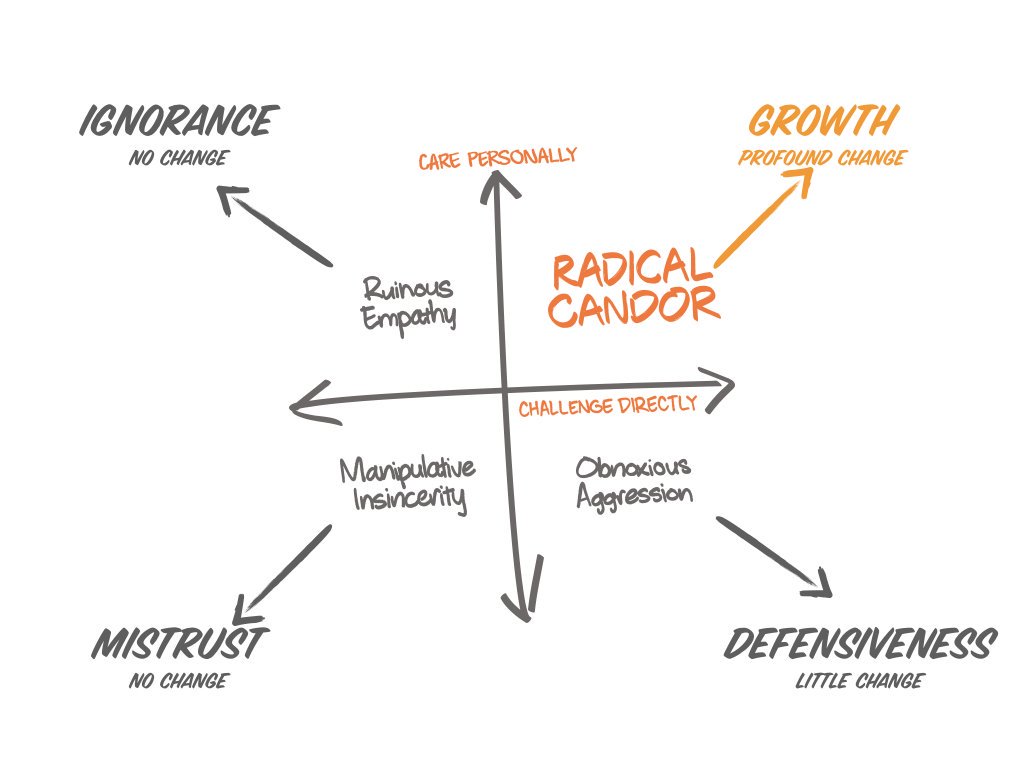The terms ‘psychological safety’ and ‘radical candour’ don’t appear to sit comfortably with each other in one sentence. There is a sense that psychologically safe teams are nice and cozy place to work and a long way from a term like ‘radical candour’ (a term coined by Kim Scott). The truth however ia that psychological safety is an enabler for radical candour. When team members feel psychologically safe, they can discuss the undiscussable, in the team’s best interest. ‘Radical Candour’ describes an environment where we can both challenge directly and care personally for other team members (more on that below).
Professor Amy Edmonson defines psychological safety as:
‘a belief that one will not be punished or humiliated for speaking up with ideas, questions, concerns or mistakes, and that the team is safe for interpersonal risk-taking’.
It has been proven to be the core foundation for high-performing teams. Most notably, Google conducted a five-year research project, exploring 180 teams, to understand what underpinned the high-performing ones. After struggling to find the answer, they stumbled upon Prof Amy Edmonson’s 1999 paper and the answer lay within.
When we don’t have psychological safety, members of a team may be reluctant to speak up, we may not hear different perspectives and we not only miss the contribution of team members, we also risk not hearing when mistakes are made or risks we are exposed to. It can undermine the very functioning of the team. Worse still, some psychologically unsafe teams are characterised by blame, side-lining individuals, gossip, bullying, abuse of power, among other potentially destructive behaviours.
The work of developing psychological safety in a team is hard and it is ongoing, but the rewards in terms of team performance are worth it. Whilst we don’t want to fixate on building the perfect team, starting a dialogue on the topic and moving the dial will make a big difference.
This purpose of this article is to share some thoughts on where to start if you want to focus on nurturing psychological safety in your team and ultimately develop a culture of radical candour.
As someone with a background in statistics, I like to start with the numbers because then I can know if the work is making a difference. This may not be for everyone, so feel free to skip this paragraph. In Professor Amy Edmonson’s research, she devised a simple, 7-question questionnaire to assess levels of psychological safety in a team. The Fearless Organisation has taken this research and built a very effective tool in conjunction with Amy Edmonson (the Psychological Safety Scan). It leverages the seven questions and gives an overall score for the team as well as four scores for sub-domains (open conversations, inclusion and diversity, attitude to risk and failure as well as willingness to help). This questionnaire takes only three minutes to complete per team member but it gives a temperature gauge of the current feeling in the team. It is a powerful place to start. Using this scan, a debrief with the team can reveal behaviours that are counter-productive as well as actions to shift these to more positive behaviours. It is rare that counter-productive behaviours are intentional and opening up the conversation about what irritates or upsets team members can reveal often unintentional impacts of our actions. Our clients have been surprised by the conversations resulting from the scan and the team leader at our most recent debrief described it as a ‘breakthrough moment for the team’.
If you’d rather not start with a team scan, then here are some behaviours, which if cultivated can result in big improvements.
- Assume positive intent: when irritated by the behaviour of others in the team, assume that they did not intend to cause irritation or upset. This isn’t always easy, so we need to notice our reaction and consciously explore other potential interpretations of that behaviour.
- Get curious about the perspectives of others: even when an opinion is contrary to ours, we can be curious about it. We don’t need to change our minds, but we may be able to hold their perspective alongside ours when working through an issue. Jennifer Garvey Berger describes this behaviour as listening to learn.
- Advocate for diversity, equity and inclusion on the team: we should try to build as diverse a team as possible and leverage the diversity we have by including and providing airtime to those who have different perspectives.
- Finally, communicate with care: Using Kim Scott’s model below, we can see how we can challenge others while also caring for them personally. Striking this balance is difficult but something we should strive for. It is a place of honest conversations.

For further information on cultivating psychological safety, please do get in touch.


Recent Comments